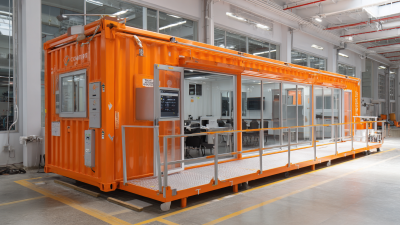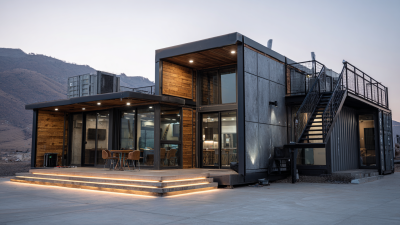In today's fast-paced world, project managers and construction teams are constantly seeking innovative solutions that can enhance efficiency and reduce costs. One such solution that has gained significant traction is the use of Container Camps. These modular living and workspace units offer a versatile alternative to traditional construction methods, particularly in remote and challenging environments. By providing flexible accommodation and operational space, Container Camps facilitate quicker setup times and a sustainable approach to project management. Whether it's for oil and gas ventures, mining operations, or emergency response situations, the benefits of adopting Container Camps are numerous. This guide will walk you through the key reasons why you should consider Container Camps for your next project, showcasing their practical applications and potential to revolutionize the way we approach temporary infrastructure in various industries.
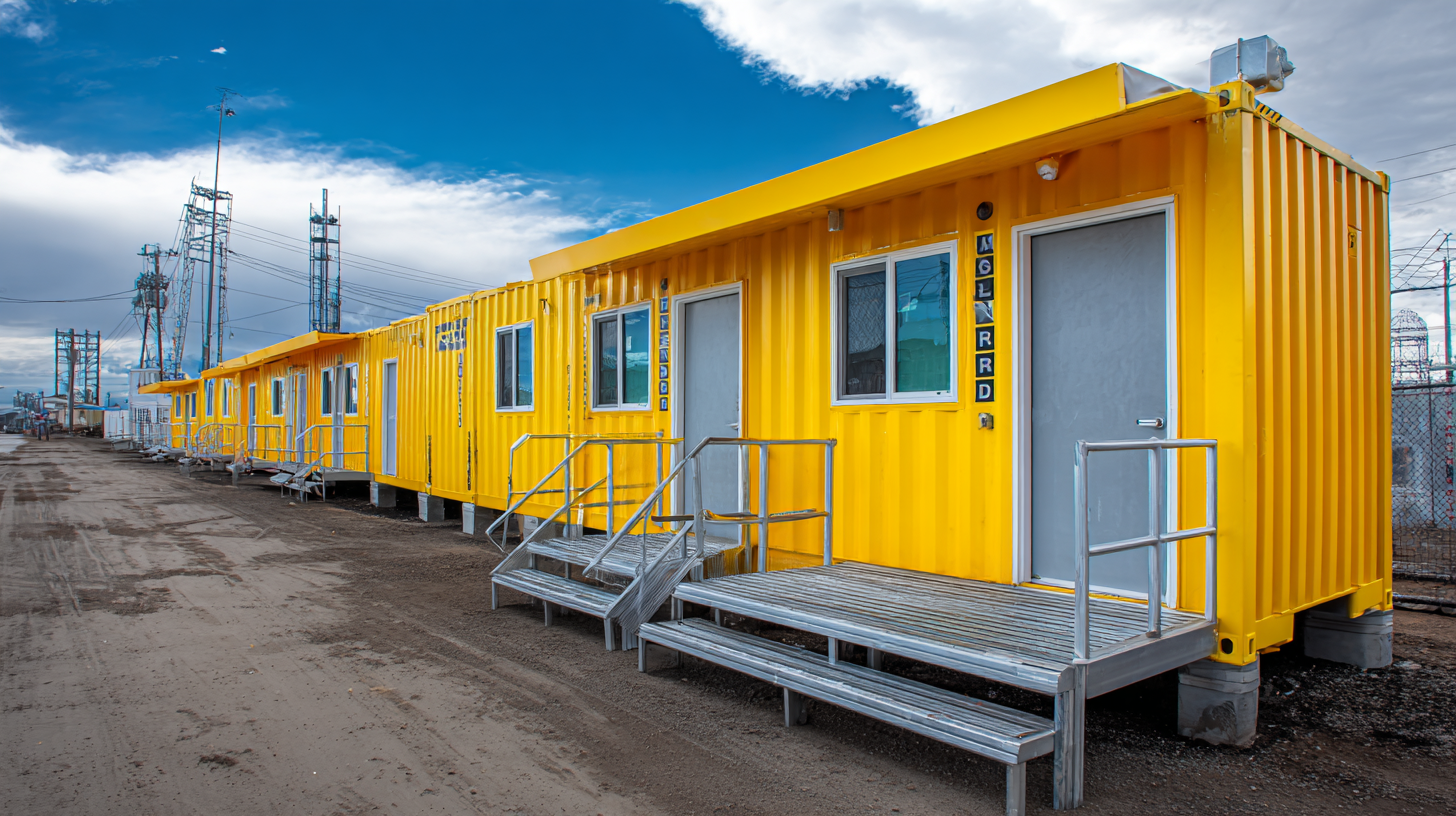
Container camps have emerged as an innovative solution for temporary housing needs, particularly in remote or disaster-stricken areas. One of the primary benefits of using container camps is their versatility. These structures can be easily transported and assembled, making them ideal for projects that require rapid deployment. Whether it's for humanitarian relief efforts, construction sites, or temporary workforce housing, container camps provide a flexible accommodation option that can be customized to meet specific requirements.
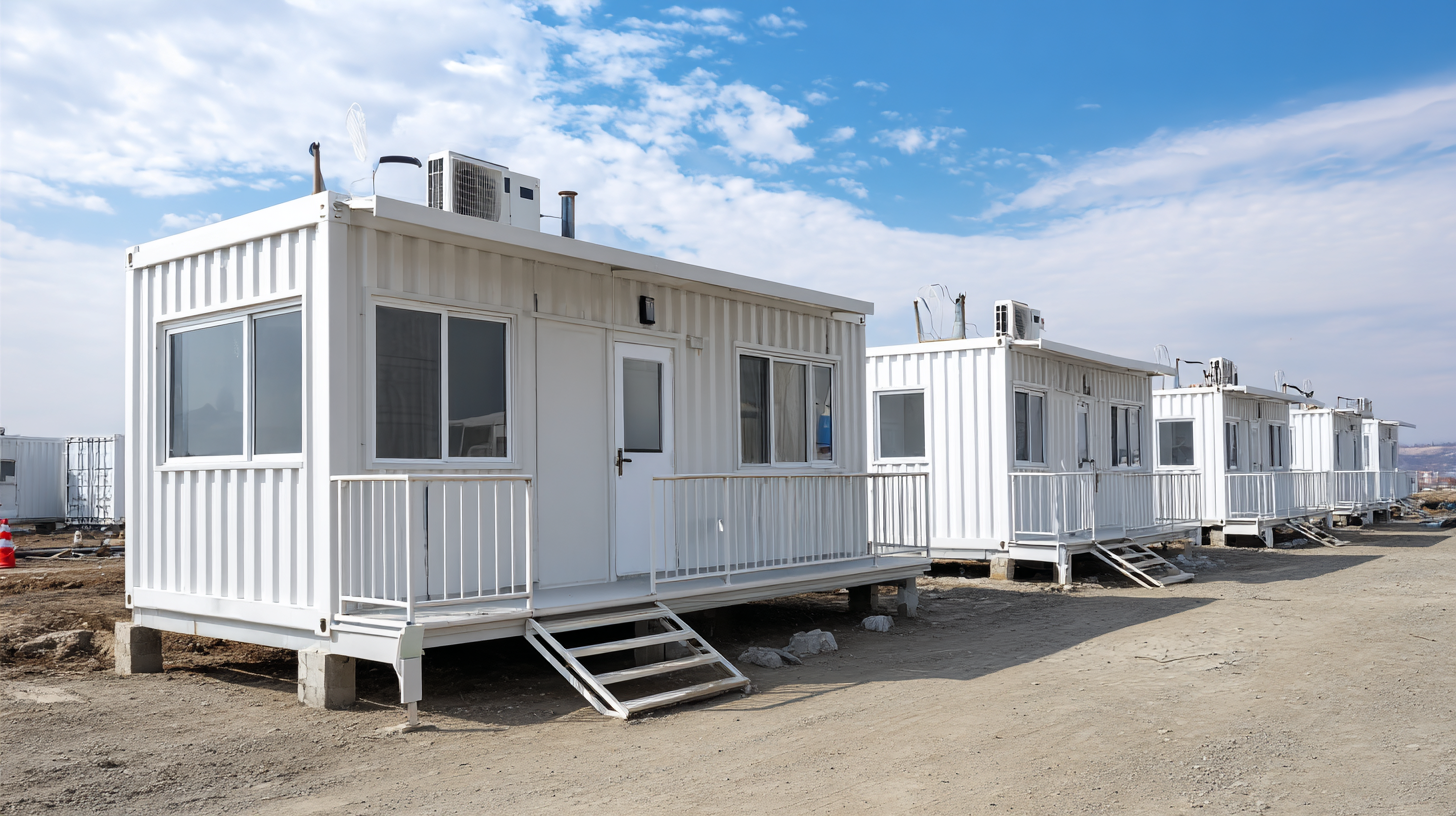
Another significant advantage is cost-effectiveness. Traditional building methods can be time-consuming and expensive, especially in challenging environments. Container camps offer a more affordable alternative, with reduced construction time and lower overhead costs. Additionally, they are durable and resistant to extreme weather conditions, ensuring that residents remain safe and comfortable. With the rising demand for sustainable living solutions, container camps also present an eco-friendly option, as they can be repurposed and reused, minimizing environmental impact. These benefits make container camps an appealing choice for anyone considering temporary housing solutions for their next project.
Container camps have emerged as a viable solution for project management, particularly due to their cost-effectiveness. Utilizing shipping containers as temporary or permanent living and working spaces significantly reduces expenses associated with traditional construction materials and labor. These camps can be quickly assembled, minimizing downtime and allowing projects to commence rapidly, which is vital in industries such as construction, mining, and oil extraction. The modular nature of container camps also means that they can be easily transported and reconfigured, further reducing logistical costs.
Moreover, container camps offer significant savings in maintenance and utility costs. Their robust design and insulation capabilities contribute to lower energy expenses, making them an environmentally friendly alternative. This durability also translates to lesser upkeep over time, compared to conventional building structures, thus optimizing long-term budget allocation. Consequently, investing in container camps not only facilitates immediate financial savings but also promotes a more sustainable approach to project management, allowing companies to allocate resources more effectively across various stages of their projects.
Container camps are rapidly gaining traction across various sectors due to their inherent flexibility and scalability. Unlike traditional construction methods, container camps can be set up quickly and easily, facilitating project timelines and reducing overhead costs. According to a recent industry report by Mordor Intelligence, the global modular construction market is projected to grow at a rate of 6.5% annually, driven largely by the rising demand for quick-to-deploy housing solutions in remote locations, making container camps a strategic choice for projects ranging from construction sites to disaster relief.
One of the primary advantages of container camps is their adaptability. They can be customized to meet specific needs, whether it’s for short-term housing or long-term workforce accommodations. Furthermore, their modular nature allows for easy expansion or reduction in size as project requirements evolve. This scalability means companies can efficiently manage resources without incurring unnecessary costs, as highlighted in a report by ResearchAndMarkets, indicating that companies utilizing modular units can save up to 20% on total project costs.
**Tips:** When planning your container camp project, assess the space requirements thoroughly to ensure optimal design and functionality. Additionally, consider eco-friendly options; many manufacturers now offer sustainable container solutions that are not only cost-effective but also environmentally responsible, appealing to the growing demand for green building practices.
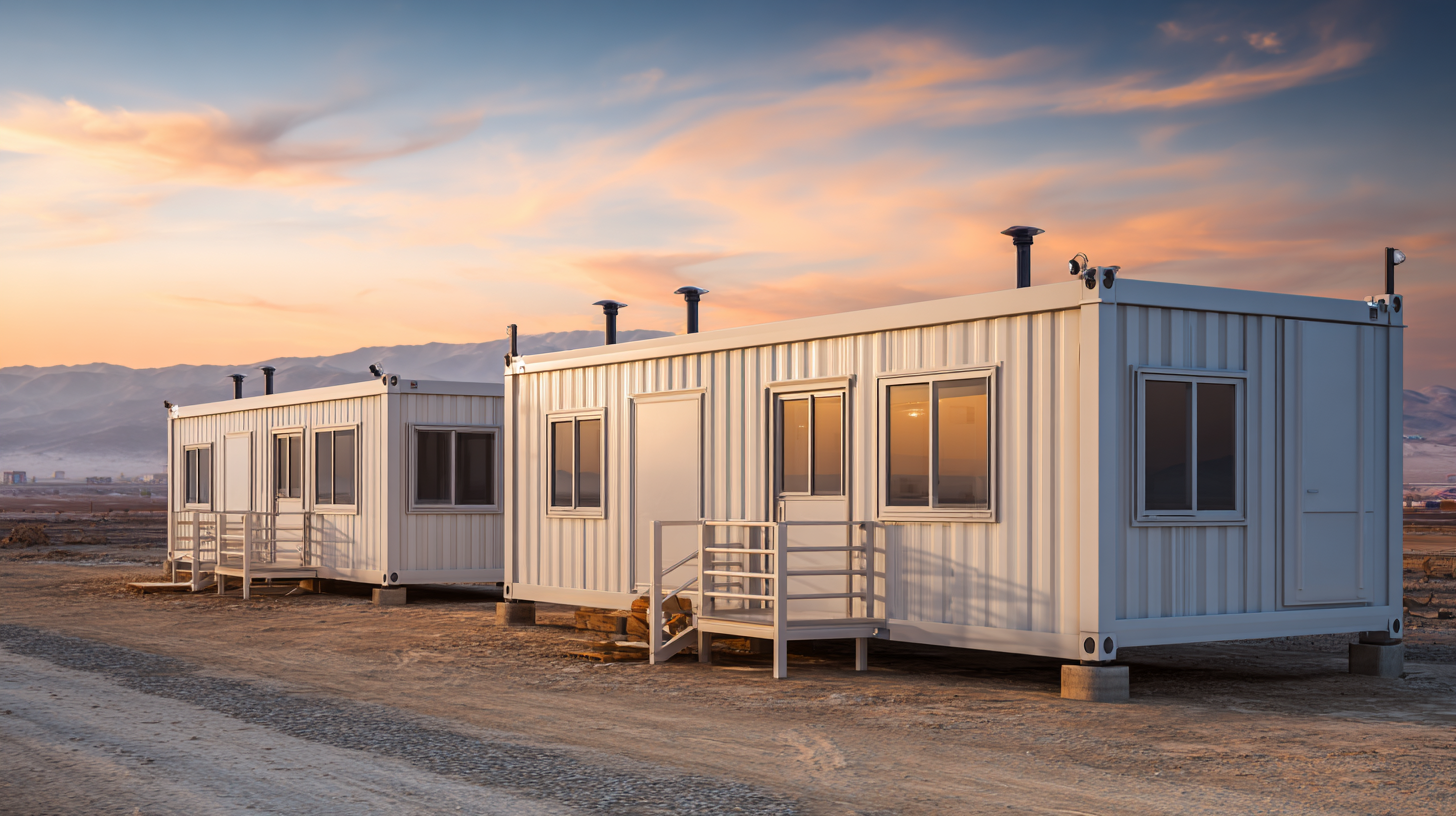
Container construction is rapidly gaining traction as a sustainable and environmentally friendly option for various projects. According to a report by the World Economic Forum, the construction sector accounts for nearly 40% of global carbon emissions. By utilizing shipping containers, which are typically repurposed and recycled, businesses can significantly reduce their carbon footprint. Container camps not only minimize waste but also provide a quicker, modular building solution that reduces the overall resource consumption associated with traditional construction methods.
One of the key benefits of container construction is its energy efficiency. A study by the International Institute for Environment and Development highlights that insulated shipping containers can cut heating and cooling energy requirements by up to 40%. This remarkable reduction not only translates to lower energy bills but also decreases greenhouse gas emissions, aligning with global sustainability goals.
Tip: When planning your container project, consider using reclaimed materials for finishing touches, as this further enhances sustainability and reduces reliance on virgin resources.
Furthermore, container camps can be strategically located to minimize land impact. By placing them in existing urban areas or degraded lands, the need for new infrastructure is diminished, preserving natural landscapes.
Tip: Engage with local communities early in the planning process to ensure that your project aligns with their environmental priorities, thereby fostering collaboration and support.
Container camps offer a unique solution for rapid deployment and setup, making them an ideal choice for various projects, particularly in remote or challenging environments. These camps can be quickly assembled, often in a matter of days, enabling teams to kickstart projects without the lengthy lead times associated with traditional construction methods. The modular nature of container camps allows them to be tailored to specific needs, providing flexible spaces for offices, accommodations, and communal areas—all designed to be transported and reconfigured with ease.
Additionally, the efficiency of container camps translates not only to time savings but also to cost-effectiveness. By minimizing delays and resource allocations for infrastructure setup, organizations can redirect funds and efforts toward core project activities. The pre-fabricated nature of these structures ensures that minimal labor is required for setup, further reducing overhead costs. As businesses seek ways to navigate rapidly changing demands and operational challenges, container camps stand out as a pragmatic solution for swift and efficient project initiation.
